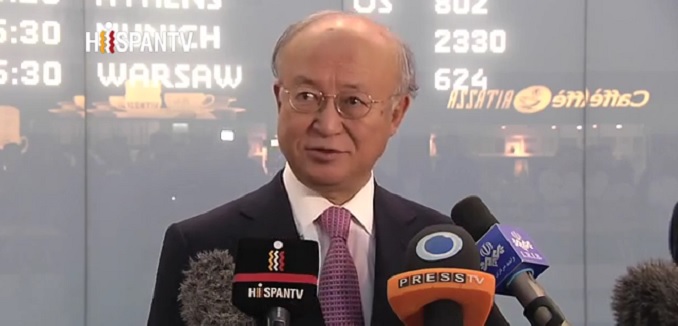Analysts continue to debate the details of the failed deal proposed last weekend between the international community and Iran, discussing both the substantive concerns of skeptics and the political consequences of what was very early on described by critics as over-eagerness by the Obama administration to cut a deal at any cost.
An extensive analysis published on Monday by TIME World had already assessed that “experts say Israel is right to be wary” of the contours of the deal, which would have allowed Iran to continue bolstering the elements that it needs for constructing both uranium and plutonium-based nuclear bombs.
TIME describes a series of conference calls hosted by The Israel Project (TIP) in which experts outlined the mechanics of Iran’s nuclear program and what would constitute an Iranian drive for a nuclear weapon. Olli Heinonen, a former deputy director of the United Nation’s International Atomic Energy Agency, had explained on a TIP call how Iran’s stockpile of 3 percent enriched uranium was “something like 60 percent” of the way toward weapons-grade levels, while David Albright, the head of the U.S.-based Institute for Science and International Security, had assessed on another TIP call how Iran could go nuclear in “as little as a month.”
Patrick Clawson and Mehdi Khalaji, respectively the director of research and a senior fellow at the Washington Institute, published an opinion piece Tuesday in the Washington Post outlining fears surrounding a potential deal:
In high-profile speeches, Khamenei has been laying the groundwork to walk away from any deal by warning that the West is untrustworthy and will not deliver on its promises — the same reasons he gave for walking away from the earlier nuclear deals. Israel has good reason to worry that the economic sanctions will be eased, reducing the pressure on Iran such that whatever the West presents as the first temporary step is never followed by another step, meaning that Tehran never accepts more limits on its nuclear program. Saudi Arabia has equally solid grounds to worry that, in return for a nuclear deal, Iran would get a free hand to pursue its hegemonic agenda in the region and consolidate its influence in Syria and Iraq.
[Photo: hispantv / YouTube]




